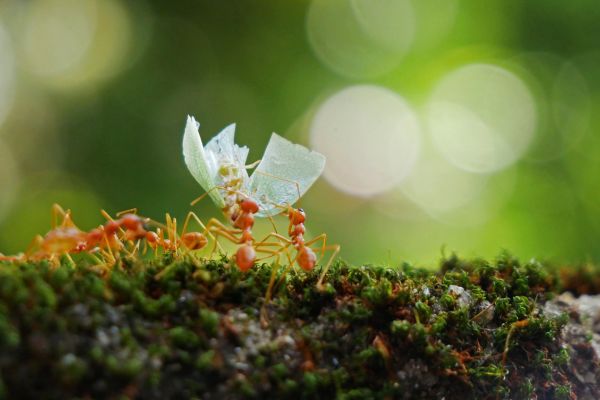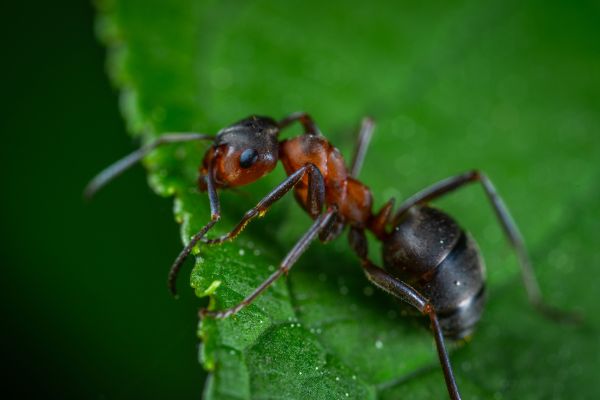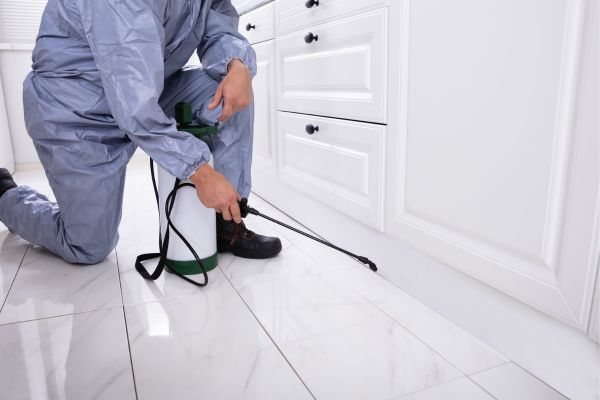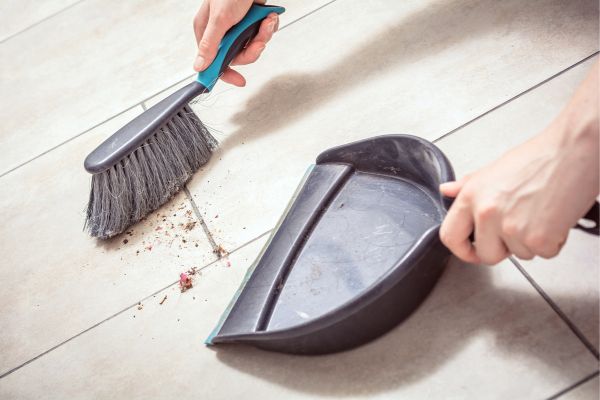Ant infestations are a common yet frustrating issue faced by many homeowners and garden enthusiasts. These tiny creatures, while fascinating in the wild, can become a nuisance when they invade our living spaces. Understanding their behavior, identifying the species, and implementing targeted elimination methods are crucial steps in dealing with this problem effectively. This post offers a comprehensive guide on various effective strategies to eliminate ants, ranging from natural repellents to chemical solutions. Tailored for both novices and experienced individuals, the following sections will equip you with the knowledge and tools needed to tackle ant infestations head-on.
Contents
Insights into Ant Behavior

Ants are social insects, functioning within a highly structured colony system. Each colony consists of workers, drones, and a queen, each playing a specific role. Understanding this hierarchy is essential in targeting the colony effectively. For instance, eliminating the queen results in the colony’s eventual collapse. Additionally, ants communicate primarily through pheromones, which can be used to your advantage in controlling them.
The foraging behavior of ants is particularly important when considering elimination methods. Worker ants are constantly in search of food and water sources for their colony. They leave a pheromone trail for others to follow, leading them to food. Disrupting these trails can be an effective strategy in ant control. Moreover, understanding their attraction to certain types of food can help in setting up effective baits.
Identifying Common Ant Species

Recognizing different ant species is critical as each requires a unique approach for elimination. Common household ants include carpenter ants, known for damaging wood, and sugar ants, attracted to sweet substances. Pavement ants typically make their nests in or under cracks in pavement. Each species has distinct characteristics in terms of appearance, nesting habits, and diet preferences.
For example, carpenter ants are larger and primarily nocturnal, making their detection and elimination a different challenge compared to the smaller, more ubiquitous sugar ants. Identifying the species helps in choosing the most effective bait and pesticide. It also aids in determining the best time and place to target them, ensuring a more successful ant control endeavor.
Natural Ant Repellents

Many homeowners prefer natural methods to eliminate ants, avoiding the use of harsh chemicals. Common natural repellents include vinegar, lemon juice, and essential oils like peppermint. These substances work by disrupting the ants’ scent trails, making it harder for them to navigate. Additionally, certain spices like cinnamon and cloves are disliked by ants and can be used as deterrents.
The application of these natural repellents is simple and safe. Vinegar, for instance, can be diluted with water and sprayed directly onto ant trails. Lemon juice works similarly and can be used to wipe down surfaces. Peppermint oil, when applied around entry points, not only repels ants but also leaves a pleasant scent. These methods are particularly appealing for their non-toxic nature, making them safe for use in homes with pets and children.
DIY Ant Baits and Traps

Creating your own ant baits and traps can be an effective and cost-efficient method. Common ingredients for DIY baits include borax, sugar, and water. The sugar attracts the ants, while the borax acts as a poison. These baits can be placed near ant trails and entry points. Another method involves using a mixture of honey and boric acid, which acts similarly. The placement of these baits is key to their effectiveness. They should be positioned close to the ants’ entry points and along their trails.
It’s important to note that while these baits are effective in killing the ants that ingest them, they also need time to be taken back to the colony to impact the larger population. Patience is required, as it may take several days to observe a significant reduction in ant activity. Additionally, safety precautions should be taken to keep these baits away from pets and children.
Chemical Ant Control

Chemical methods are a popular choice for those seeking a quick and potent solution to ant infestations. Available in various forms like sprays, granules, and gels, these chemical treatments are designed to target ants effectively. The key to using chemical ant control is to understand the specific product’s application and safety guidelines. Some are designed to be used around the perimeter of a home, while others are for direct nest application. It’s crucial to consider the potential impact of these chemicals on the environment and non-target species, especially in outdoor settings.
Despite their effectiveness, chemical solutions come with certain drawbacks. Overuse or improper application can lead to harmful effects on pets, children, and beneficial insects. It’s also possible for ants to develop resistance to certain chemicals over time, reducing the long-term efficacy of these methods. Therefore, it’s advisable to use chemical controls as part of a broader integrated pest management approach. This strategy involves combining chemical treatments with other methods, such as sanitation and physical barriers, to achieve more sustainable and effective ant control.
Professional Extermination Services

In cases where ant infestations are extensive or difficult to manage, professional extermination services can be the most effective solution. Professional exterminators have access to more potent chemicals and specialized equipment, enabling them to tackle large-scale or stubborn infestations more effectively. They also bring expertise in identifying ant species and understanding their behavior, which is crucial for effective treatment. When choosing a professional service, it’s essential to look for licensed and experienced providers who offer guarantees on their work.
Selecting the right exterminator involves ensuring they use safe and environmentally friendly methods. A reputable professional will conduct a thorough assessment of the infestation, discuss the treatment plan, and provide safety information regarding the chemicals used. They should also offer advice on preventive measures to avoid future infestations. Remember, while professional services can be more costly upfront, they often provide a more permanent solution to severe ant problems.
Preventive Measures to Avoid Ant Infestations

Prevention is key in the battle against ants. Simple measures can significantly reduce the likelihood of an infestation. Start by sealing cracks and openings around doors, windows, and foundations to block entry points. Regular cleaning to remove food residues, especially in the kitchen, is crucial as even small crumbs can attract ants. Storing food in airtight containers and disposing of garbage regularly can also help prevent ant infestations.
Beyond cleanliness, consider the environment around your home. Trim tree branches and shrubs that touch the house, as they can serve as pathways for ants. Regularly inspecting and repairing damp areas, as ants are attracted to moisture, is also important. Additionally, ensure that your yard is well-maintained, with mulch and plants kept at a reasonable distance from the house’s foundation. These practices, combined with regular monitoring, form a solid foundation for keeping ants at bay.
End The Battle Against Ants Successfully
To effectively eliminate ants, it’s important to use a multifaceted approach. From understanding ant behavior and species to implementing both natural and chemical control methods, each strategy plays a crucial role. Remember that prevention is as important as treatment. Regularly inspecting your home, maintaining cleanliness, and employing preventive measures are essential in keeping your space ant-free. By following the tips and strategies outlined in this post, you can tackle ant infestations more effectively and maintain a comfortable, ant-free living environment.


